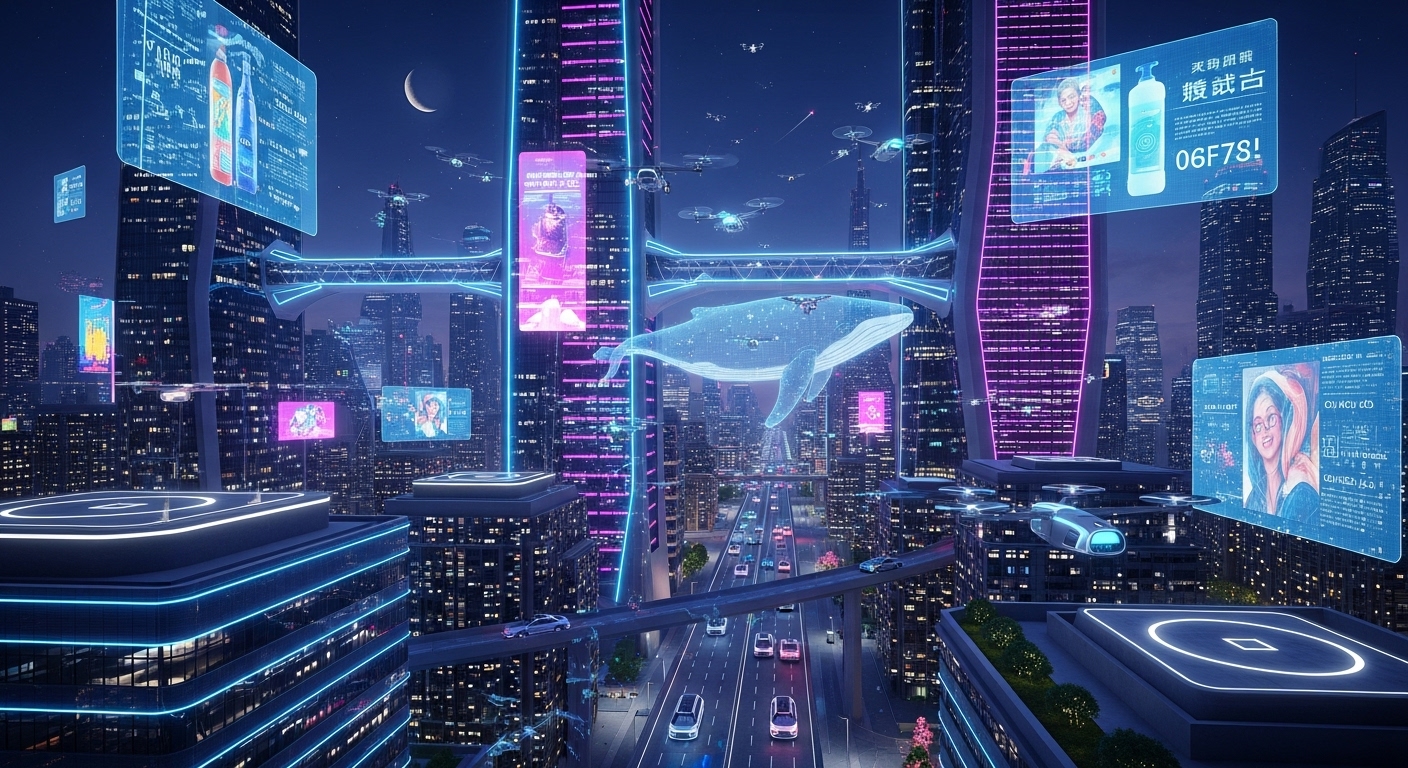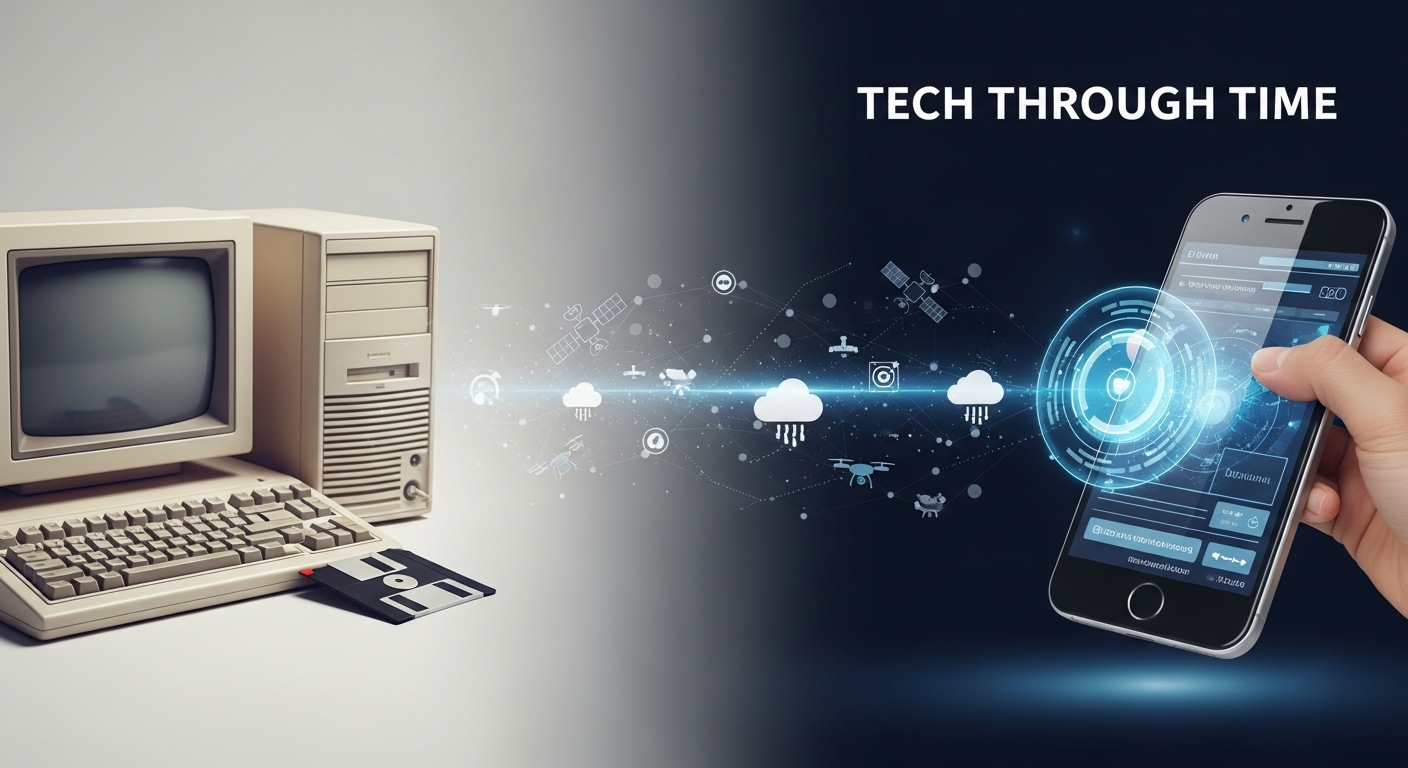Introduction: A New Era of Technological Innovation
We are standing at the cusp of a new era in technology. What once seemed like science fiction is now rapidly becoming a reality. From artificial intelligence (AI) and quantum computing to the evolution of 5G networks, the technological landscape is transforming in ways we could only dream of a few years ago. These advancements are not just influencing industries but are fundamentally altering how we live, work, and interact with the world around us. As we continue to innovate, one thing is clear: the future of technology holds endless possibilities.
Artificial Intelligence: The Brainpower Behind Innovation
One of the most exciting technological developments today is artificial intelligence. AI is no longer just a concept—it’s now an integral part of everyday life. From voice assistants like Siri and Alexa to more complex applications in healthcare, finance, and even autonomous vehicles, AI is helping us solve problems faster, more efficiently, and with greater precision. What makes AI particularly revolutionary is its ability to learn and adapt over time. This self-learning ability is what sets AI apart, making it a powerful tool in fields ranging from data analysis to personalized healthcare. However, as AI continues to evolve, questions around ethics, privacy, and job displacement are becoming more urgent.
The Rise of Quantum Computing: A Game-Changer for Problem-Solving
Quantum computing represents a leap forward in computational power. Unlike traditional computers, which process information in binary (using bits that are either 0 or 1), quantum computers use quantum bits or “qubits.” These qubits can exist in multiple states at once, allowing quantum computers to perform complex calculations at unprecedented speeds. This capability could revolutionize fields such as cryptography, drug discovery, and climate modeling. While quantum computing is still in its infancy, its potential to solve problems that are currently beyond the reach of classical computers is immense. As the technology matures, it will open new frontiers in innovation, making it a critical area to watch.
5G Networks: Connecting the World at Lightning Speed
The rollout of 5G technology is set to revolutionize connectivity. With speeds up to 100 times faster than 4G, 5G promises to enable more seamless communication, faster data transfer, and enhanced network reliability. But 5G is about more than just speed—it’s about creating a more connected world. This new network will power the Internet of Things (IoT), enabling smart cities, autonomous vehicles, and real-time remote healthcare, among many other innovations. With the ability to support millions of devices per square kilometer, 5G will be the backbone of the connected world of tomorrow. As cities and countries adopt 5G infrastructure, we’ll begin to see its far-reaching impacts on industries and everyday life.
The Internet of Things (IoT): A Smarter, More Efficient World
The Internet of Things (IoT) refers to the growing network of physical devices that are connected to the internet, from smart thermostats and fitness trackers to industrial machinery and even entire cities. The power of IoT lies in its ability to gather and analyze data from these connected devices in real-time, allowing for smarter decision-making and more efficient operations. In healthcare, for example, IoT devices can monitor patients remotely, providing doctors with valuable data to improve diagnoses and treatments. In smart homes, IoT can automate tasks like adjusting temperature or lighting, making our daily routines more efficient. As IoT expands, it will make everything from manufacturing to urban planning smarter and more responsive.
Blockchain Technology: Redefining Trust and Transparency
Blockchain technology is often associated with cryptocurrencies like Bitcoin, but its applications extend far beyond digital currencies. At its core, blockchain is a decentralized ledger system that records transactions in a secure and transparent manner. The value of blockchain lies in its ability to provide trust and security without the need for intermediaries like banks. In industries such as supply chain management, healthcare, and finance, blockchain is being used to improve transparency, reduce fraud, and streamline processes. For example, blockchain can track the journey of a product from manufacturer to consumer, ensuring authenticity and preventing counterfeit goods. As blockchain continues to mature, its potential to disrupt industries will only grow.
Sustainable Technology: Innovating for a Greener Future
As technological advancements continue, there’s growing recognition of the need to integrate sustainability into innovation. The tech industry is increasingly focused on developing solutions that minimize environmental impact and promote energy efficiency. From electric vehicles (EVs) to renewable energy technologies and smart grids, sustainable tech is transforming how we produce, consume, and conserve resources. Companies are also working on making devices more energy-efficient and recyclable, reducing the amount of electronic waste that ends up in landfills. The challenge lies in balancing technological progress with environmental responsibility, but the potential for green technology to make a significant impact is immense. As we face global challenges such as climate change, these sustainable innovations will play a pivotal role in shaping the future.
The Ethical Considerations of Emerging Technologies
As technology continues to evolve, so do the ethical considerations surrounding its use. Technologies like AI, IoT, and blockchain raise important questions about privacy, security, and fairness. For example, AI systems that make decisions about hiring or lending could unintentionally perpetuate biases if they’re not properly monitored and audited. Similarly, IoT devices that collect vast amounts of personal data could pose risks to user privacy if that data isn’t properly protected. Blockchain, while offering transparency, also raises questions about its potential for misuse in areas like identity theft or illegal transactions. The rapid pace of innovation means that policymakers and developers need to work together to establish ethical frameworks and regulations to ensure that emerging technologies are used responsibly.
Looking Ahead: A Future Driven by Innovation
The future of technology is both exciting and uncertain. The rapid pace of innovation means that we are constantly on the verge of new breakthroughs that will continue to reshape our world. While these advancements bring enormous opportunities, they also present significant challenges that require thoughtful consideration and responsible implementation. From AI and quantum computing to blockchain and sustainable tech, the next wave of technological innovation will redefine industries, economies, and even societies. As we look ahead, one thing is certain: the future of tech is not just about gadgets and software—it’s about the transformation of the human experience itself.
Conclusion: Embracing Change and Opportunity
As we venture further into this digital age, we must embrace the opportunities technology offers while staying mindful of the challenges it presents. The innovations of tomorrow promise to revolutionize how we live, work, and connect with the world around us. By fostering responsible development, collaboration, and ethical decision-making, we can ensure that technology continues to serve humanity’s best interests. The next frontier of tech is here, and with it comes the potential to create a better, more connected world for all.



